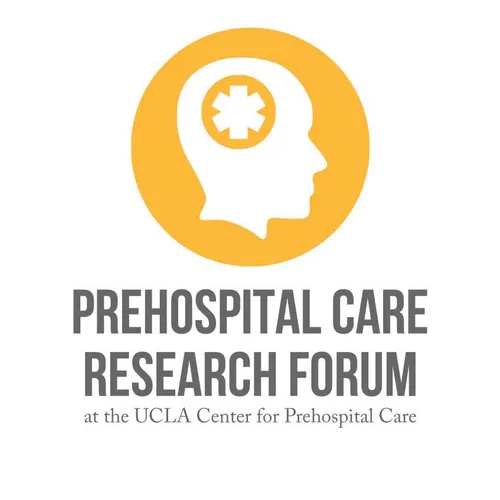
Prehospital Care Research Forum (PCRF) Journal Club
The UCLA Center for Prehospital Care established the Prehospital Care Research Forum (PCRF) at UCLA in 1992 in cooperation with JEMS Communications. The PCRF Journal Club is a bi-monthly online meeting that critically evaluates published research and its relevance to prehospital care. We aim to promote healthy and respectful discussions that challenge present and future prehospital care practices. Each session is facilitated by a panel of experts, PCRF board members, and associates.
- Update frequency
- every 11 days
- Average duration
- 61 minutes
- Episodes
- 72
- Years Active
- 2023 - 2025
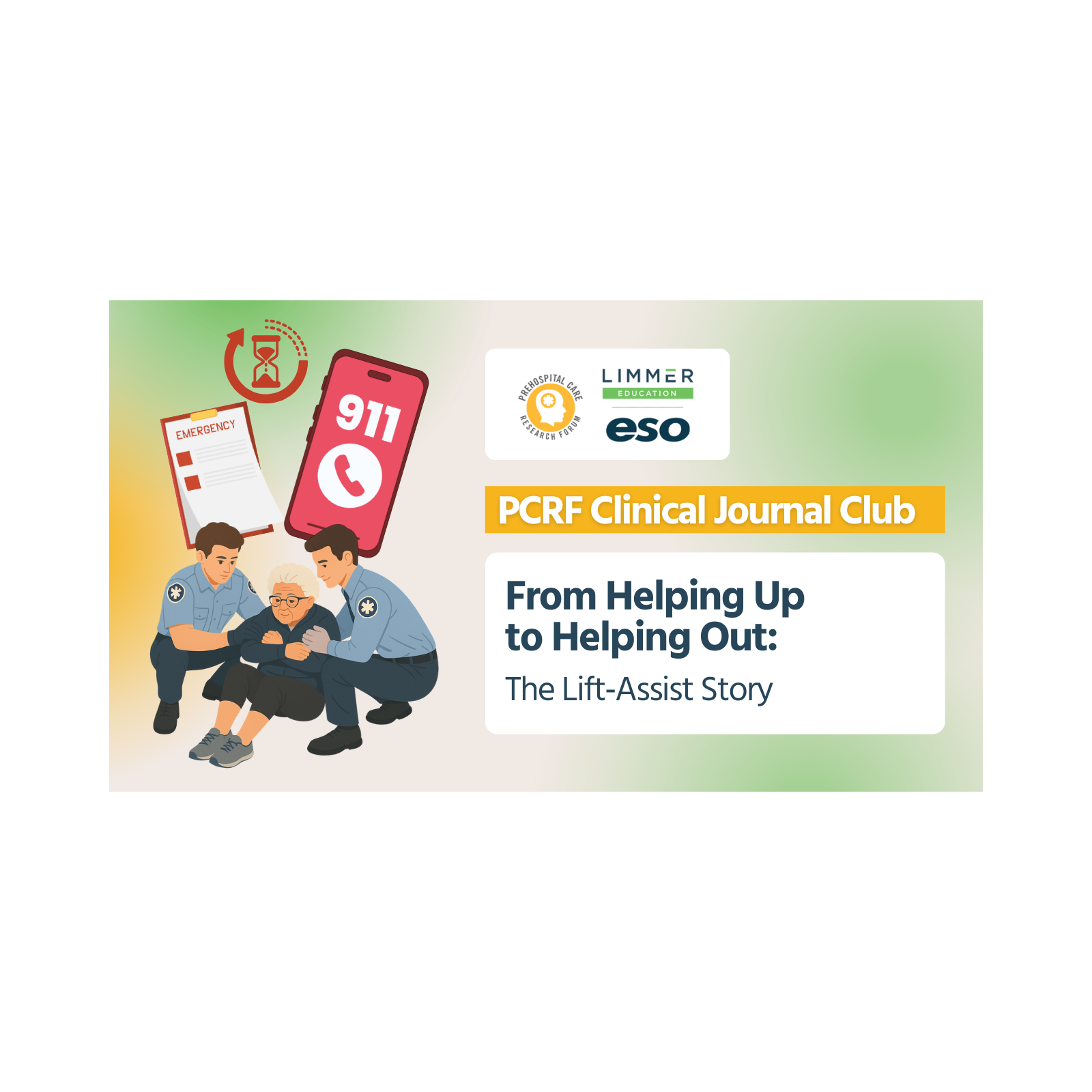
From Helping Up to Helping Out: The Lift‑Assist Story
What really happens after a lift assist? This study uncovers the timeline of patients who call 911 for help getting up—only to return days later, this time in an ambulance. Are these quiet calls a wa…
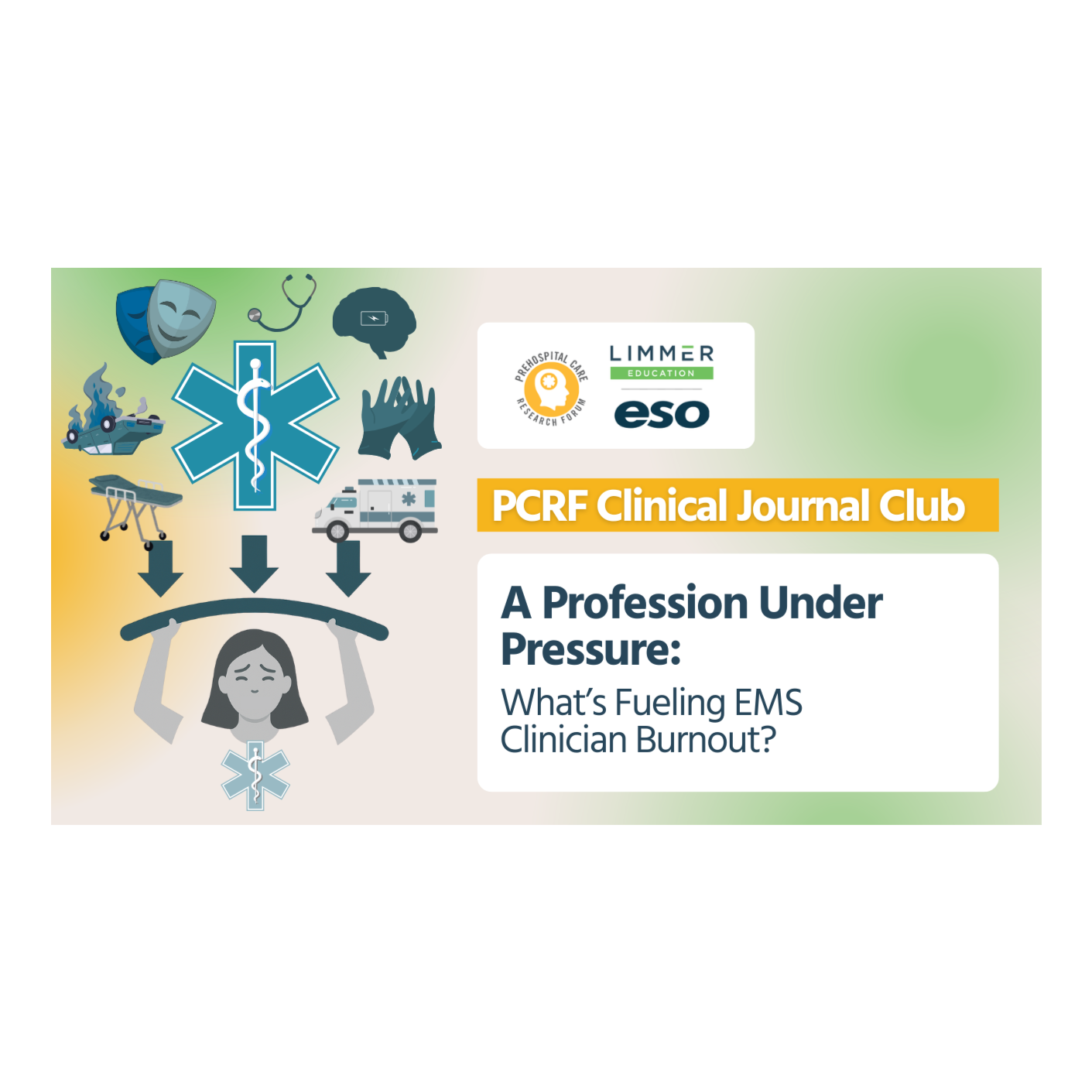
A Profession Under Pressure: What’s Fueling EMS Clinician Burnout?
Burnout is a growing concern across healthcare, but how deep does it run in EMS, and what’s the real cost? In this episode, we explore a national survey of EMS clinicians that uncovers critical insig…
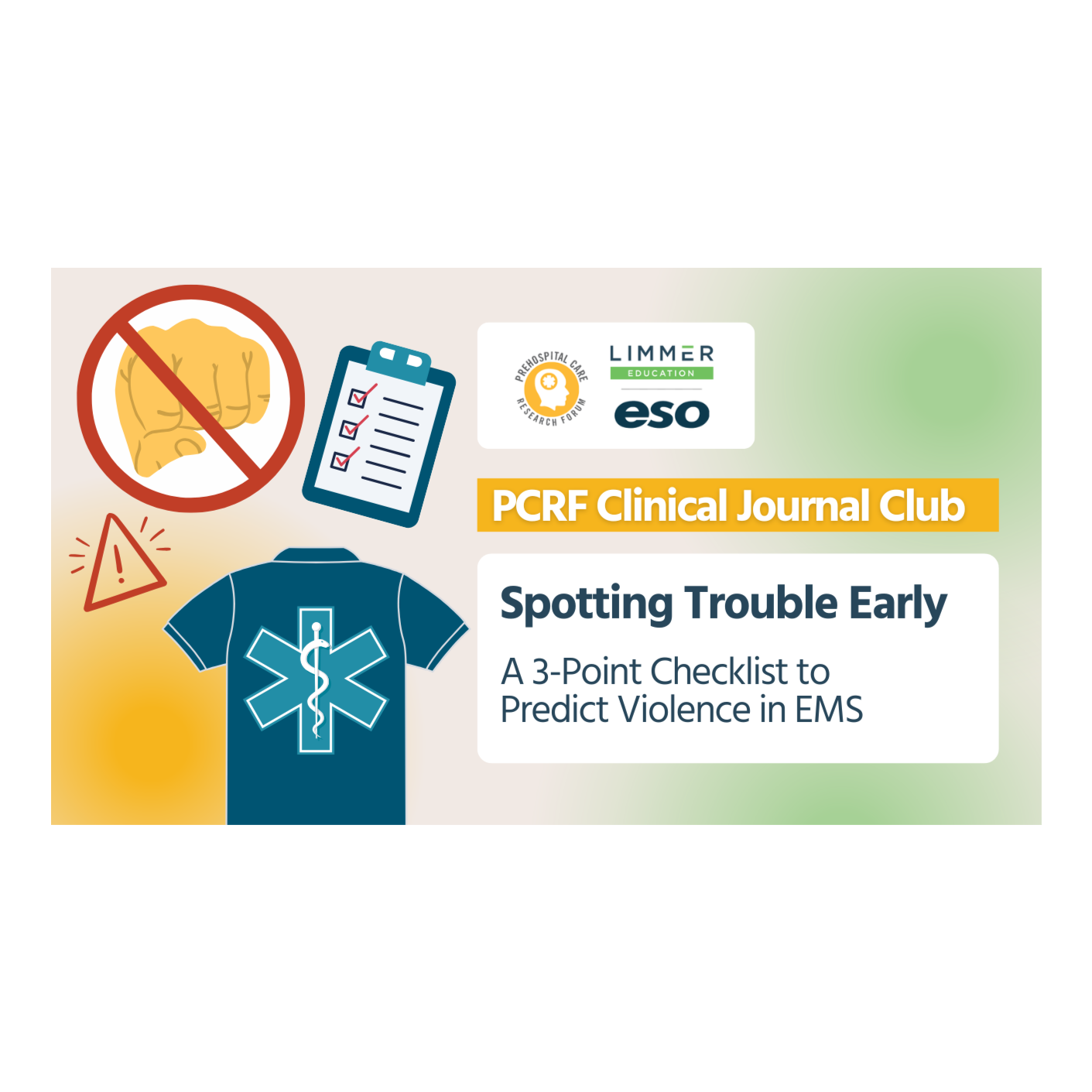
Spotting Trouble Early: A 3-Point Checklist to Predict Violence in EMS
Violence against EMS clinicians is rising—but what if we could see it coming? This month’s Journal Club explores Aggressive Behavior Risk Assessment Tool for EMS (ABRAT-EMS), a simple yet powerful 3-…
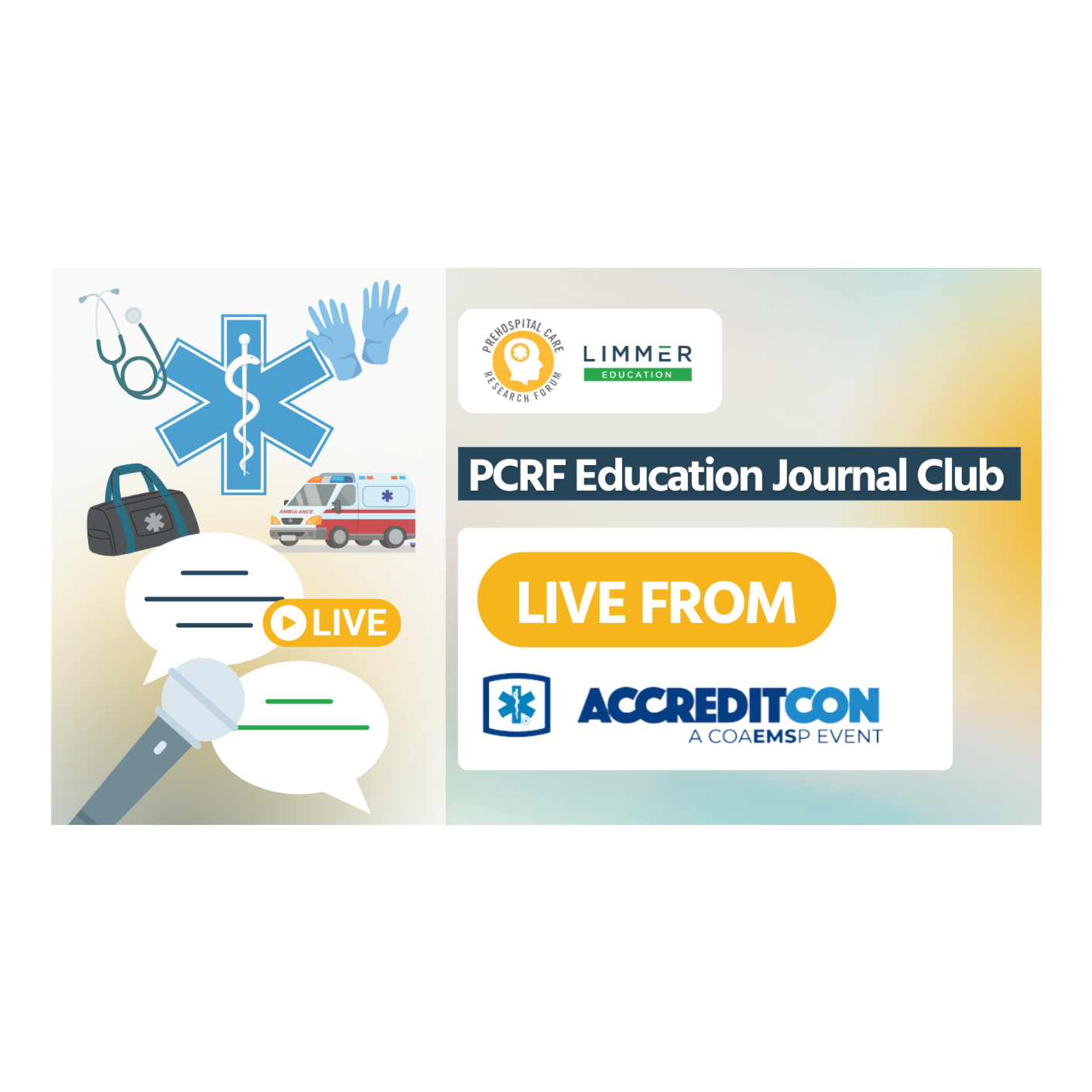
Beyond the Call: Unpacking Leadership and Communication in EMS Clinical Judgment
For EMS clinicians, clinical judgment involves higher-order thinking, beginning with clinical reasoning and culminating in clinical decision-making. Existing frameworks suggest that other constructs …
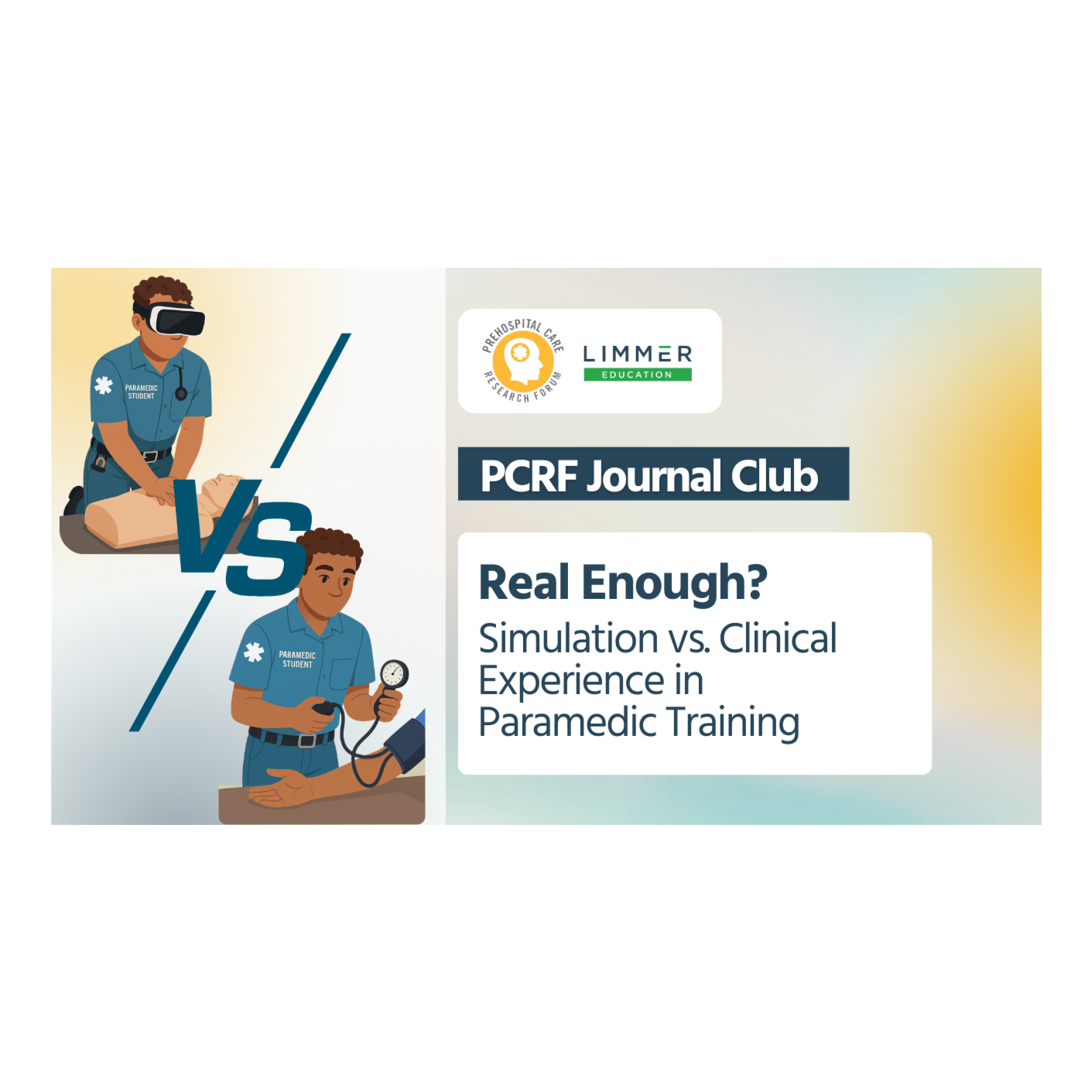
Real Enough? Simulation vs. Clinical Experience in Paramedic Training
This month's PCRF Education Journal Club dives into a systematic review exploring simulation-based education in paramedic training. With clinical placements under pressure, could sim labs be the futu…
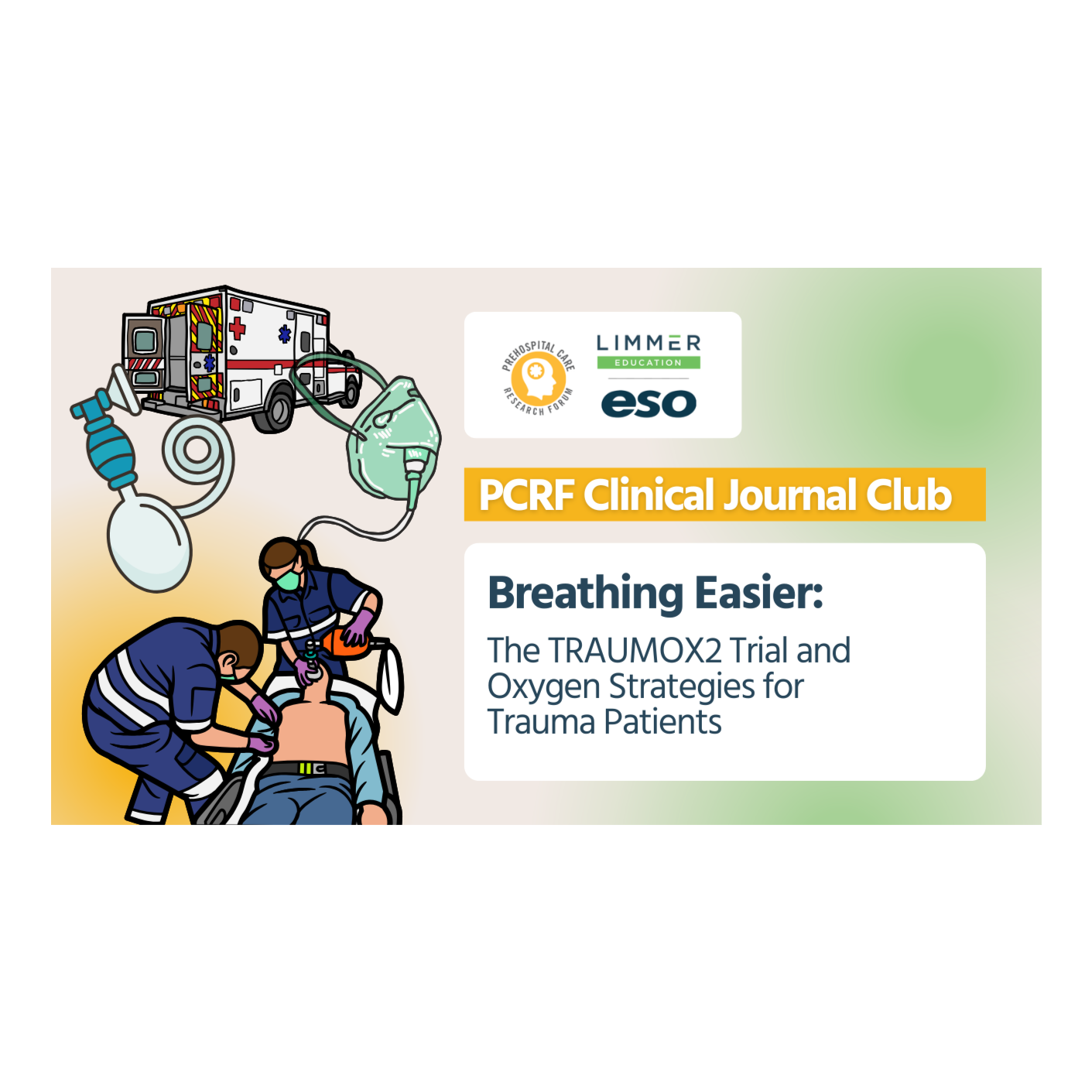
Breathing Easier: The TRAUMOX2 Trial and Oxygen Strategies for Trauma Patients
In this episode of the Prehospital Care Research Forum's Journal Club, we examine the results of the TRAUMOX2 Randomized Clinical Trial, which compares early restrictive and liberal oxygen strategies…
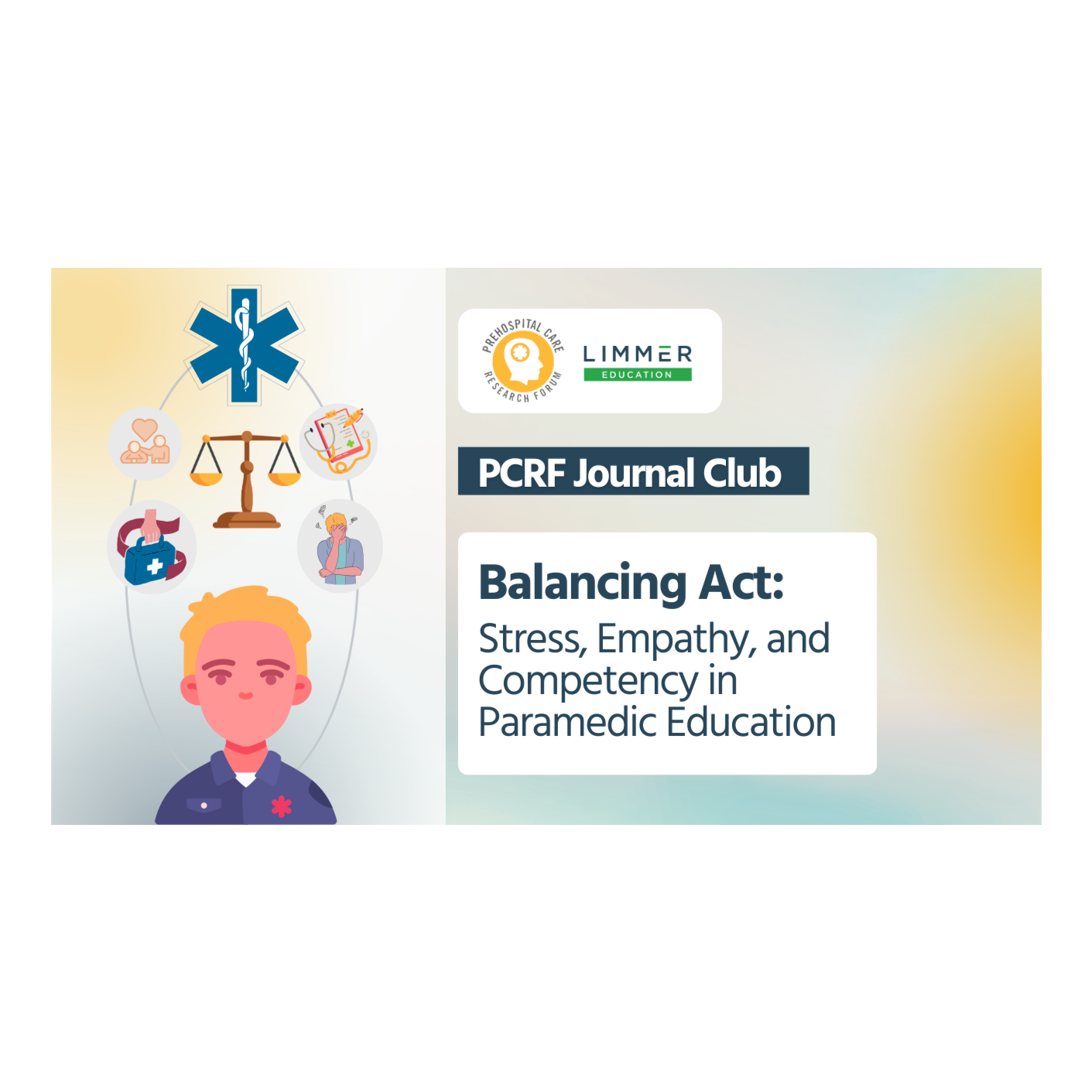
Balancing Act: Stress, Empathy, and Competency in Paramedic Education
How do stress, empathy, and coping strategies impact the clinical competency of paramedic students? In this episode of the education journal club of the Prehospital Care Research Forum Podcast, we de…
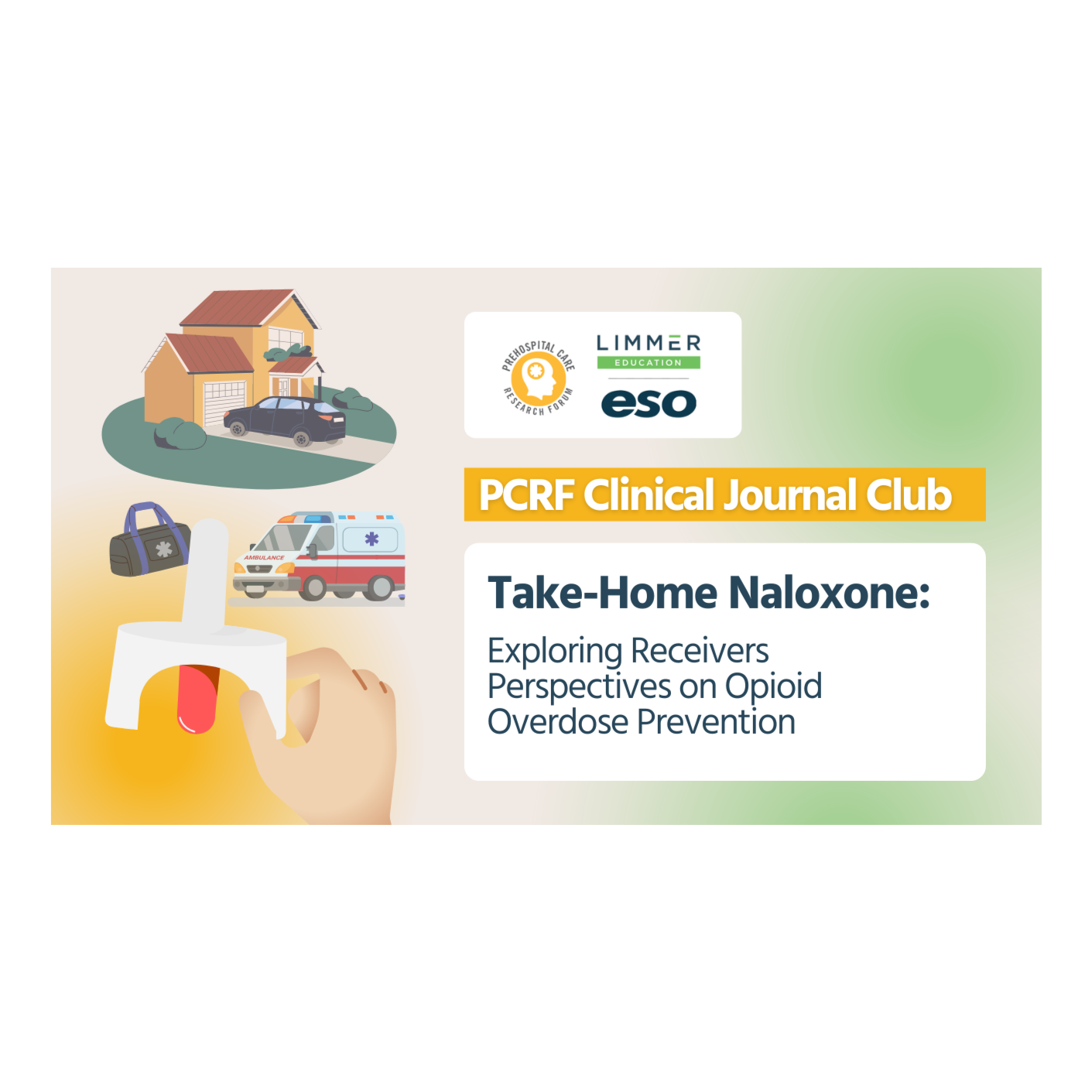
Take-Home Naloxone: Exploring Receivers Perspectives on Opioid Overdose Prevention
In this episode of the Prehospital Care Research Forum's Journal Club, we discuss the findings of a qualitative study examining the acceptability of providing take-home naloxone kits by EMS to indivi…
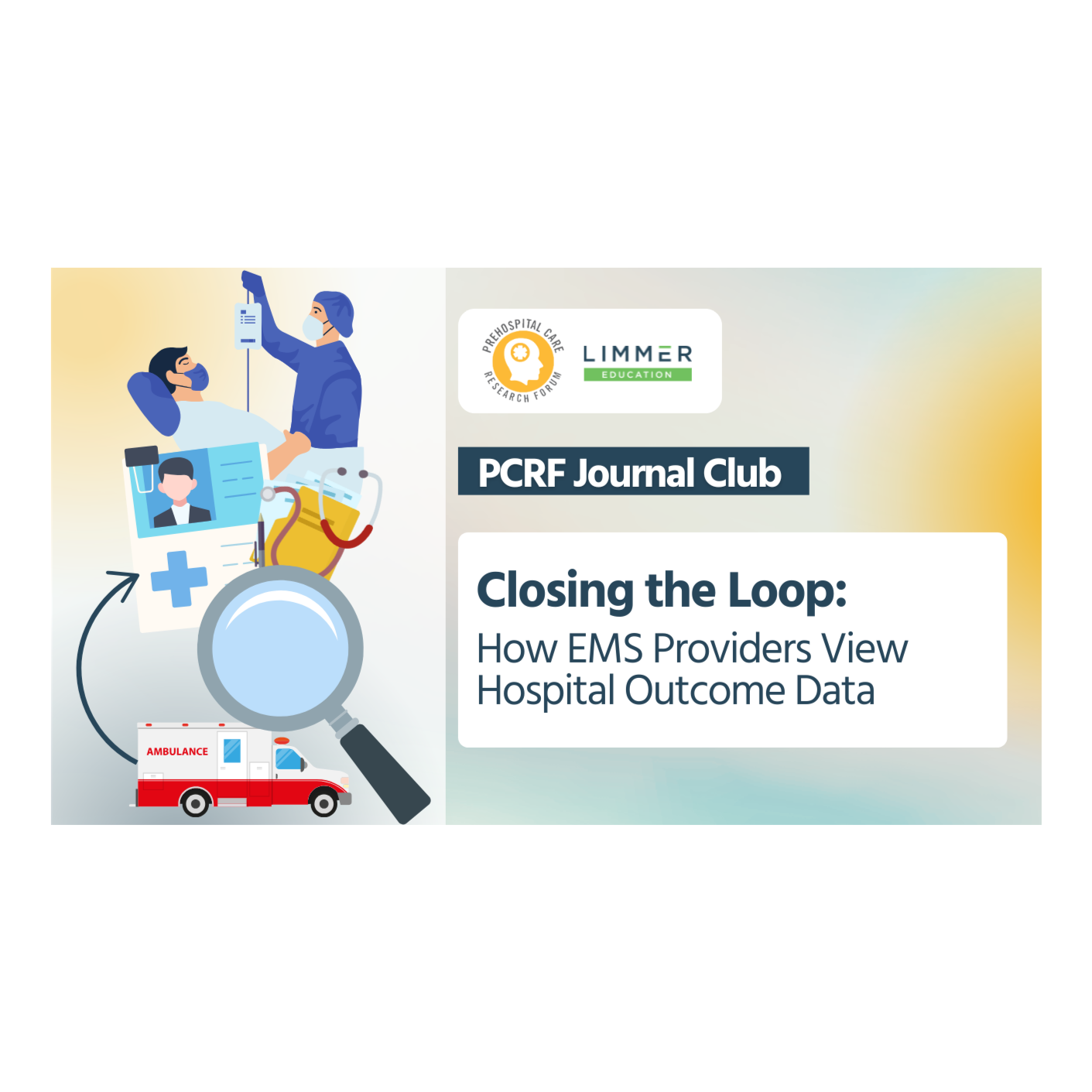
Closing the Loop: How EMS Providers View Hospital Outcome Data
In this episode of the education journal club of the Prehospital Care Research Forum Podcast, we explore the groundbreaking pilot study, "Perceptions and Use of Automated Hospital Outcome Data by EMS…
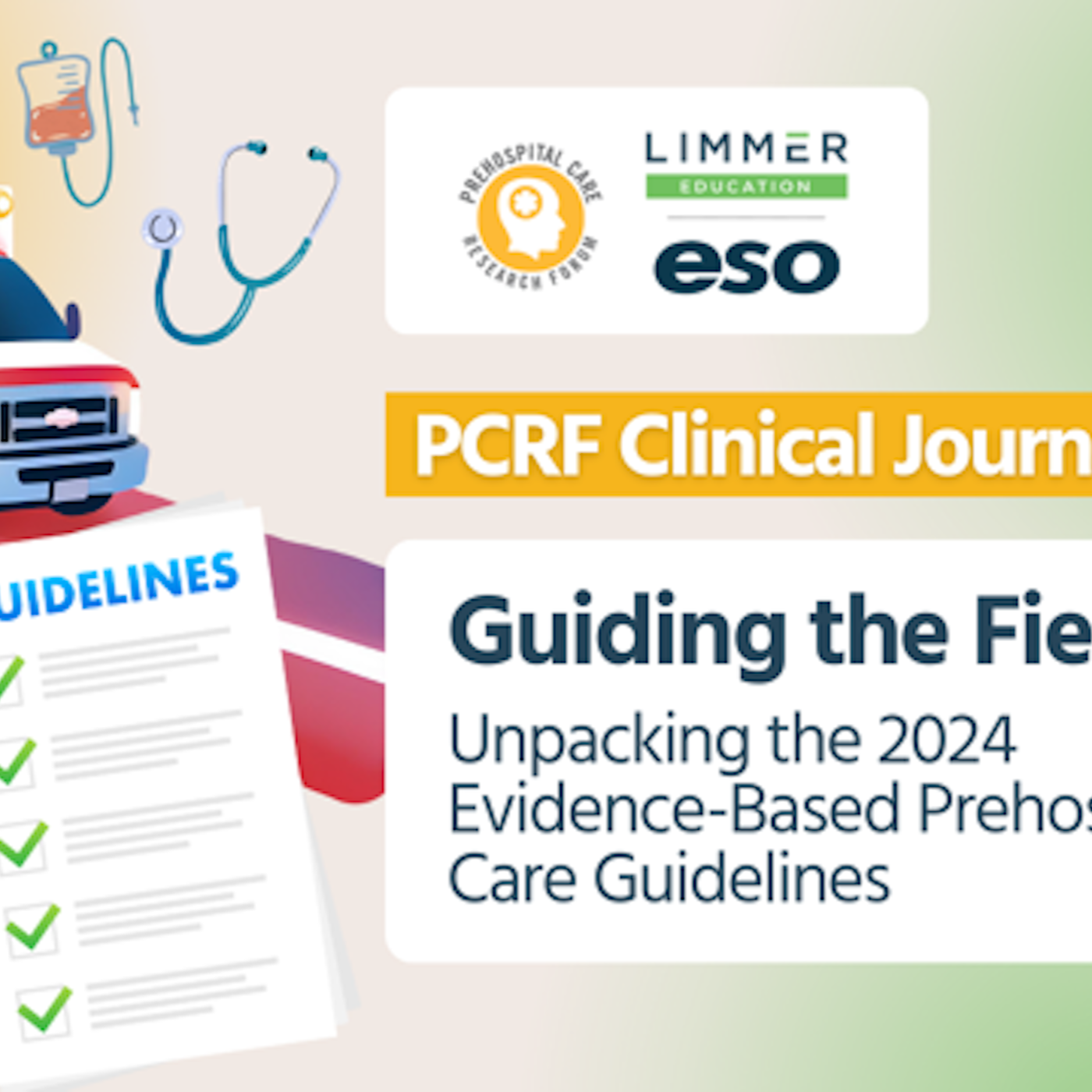
Guiding the Field: Unpacking the 2024 Evidence-Based Prehospital Care Guidelines
In this episode of the Prehospital Care Research Forum's journal club, we take a deep dive into the 2024 Systematic Review of Evidence-Based Guidelines for Prehospital Care. From groundbreaking updat…
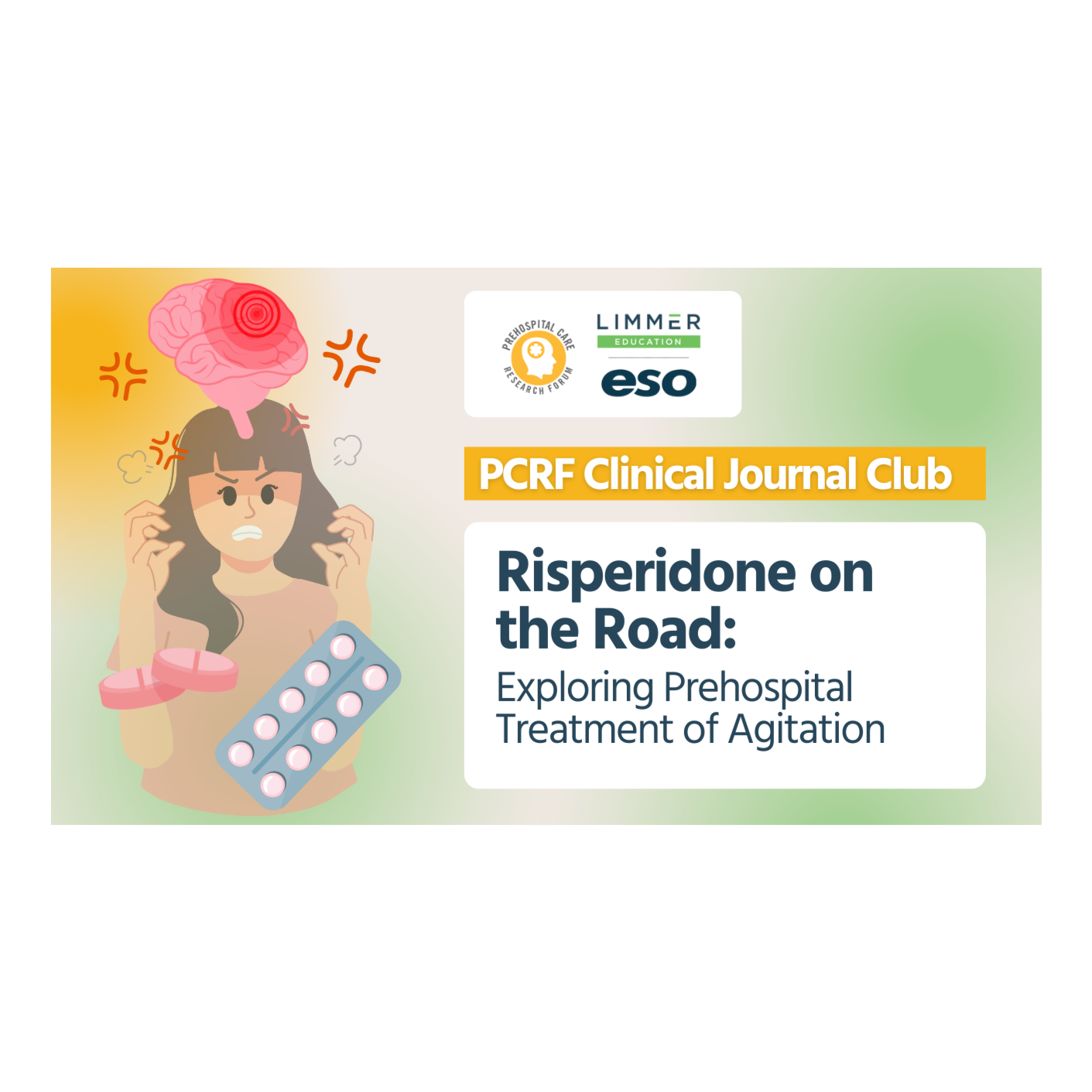
Risperidone on the Road: Exploring Prehospital Treatment of Agitation
A new potential treatment for patient agitation and safety intervention for EMS: oral risperidone. While the medication has been around since the early 1990s, it has only recently been used in EMS. J…
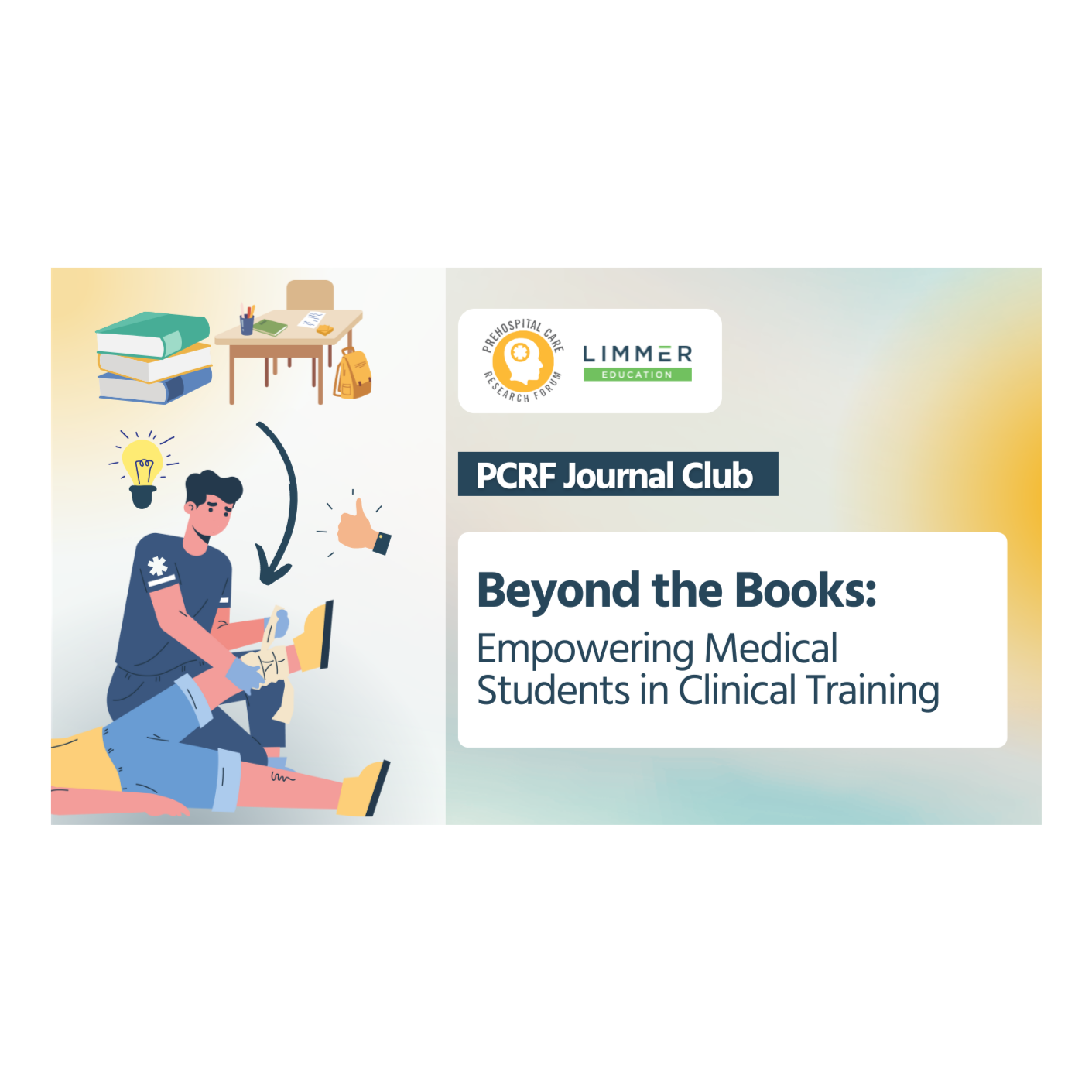
Beyond the Books: Empowering Medical Students in Clinical Training
Healthcare students often describe the leap from classroom learning to clinical and field as one of their most challenging transitions. But how can health education better prepare them for the realit…
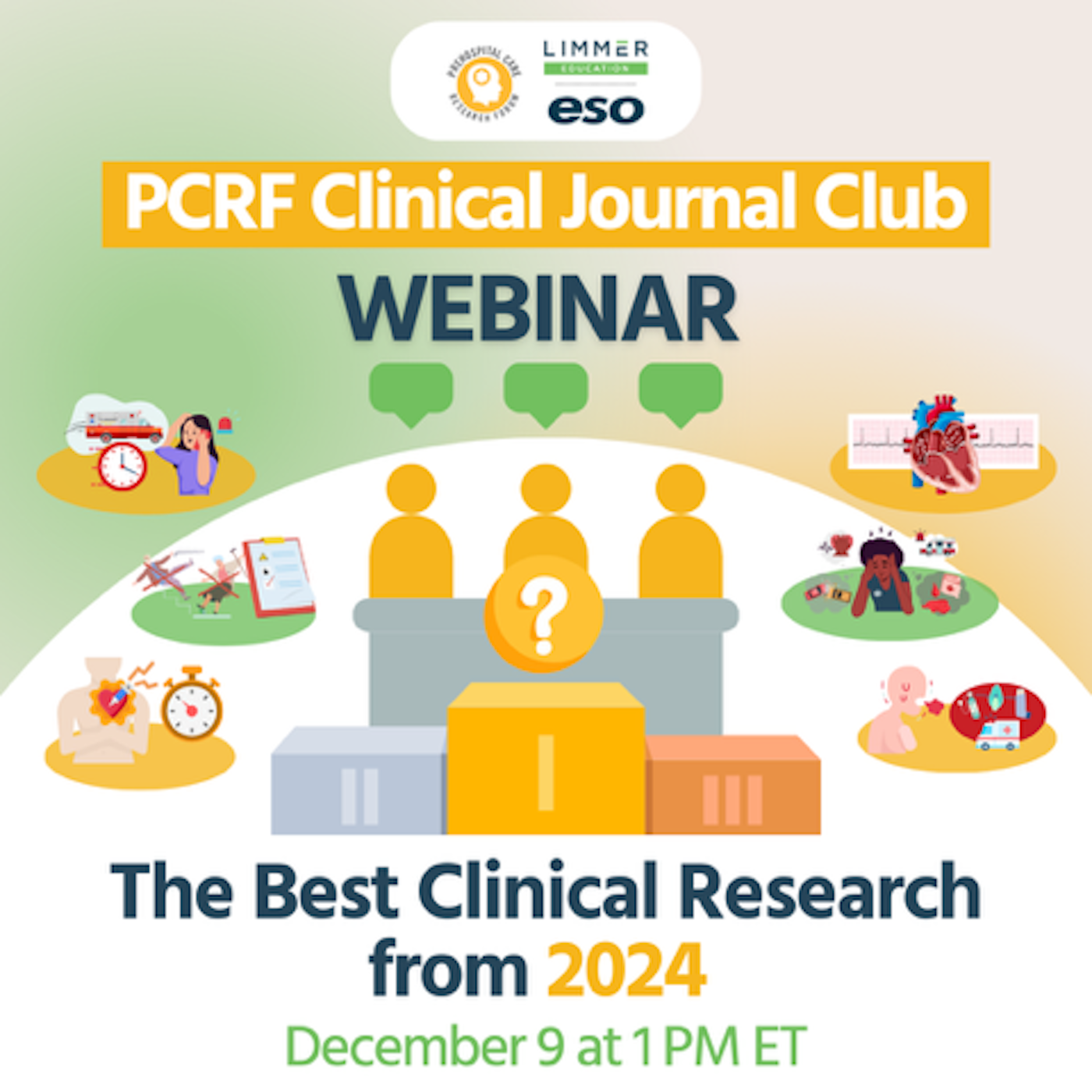
Best of EMS Education Research 2024 (Dec 24)
Our end-of-year special edition of the PCRF Education Research Journal Club where each of our panelists will share a favorite article from the educational literature in 2024.
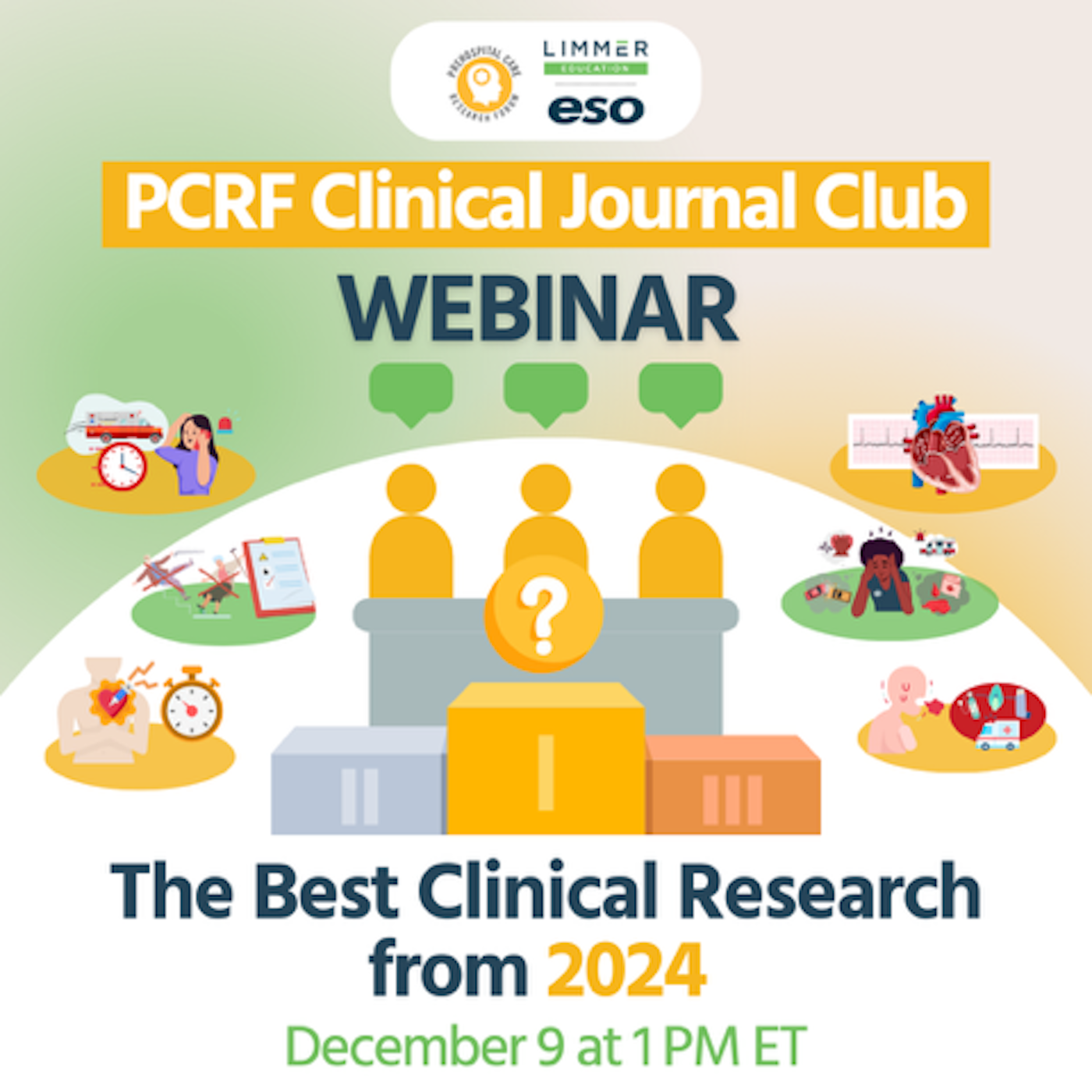
The Best Clinical Research from 2024
There has been no shortage of outstanding EMS clinical research this year! From intramuscular epinephrine injections in cardiac arrest to stabilization of atrial fibrillation in the ambulance, resear…
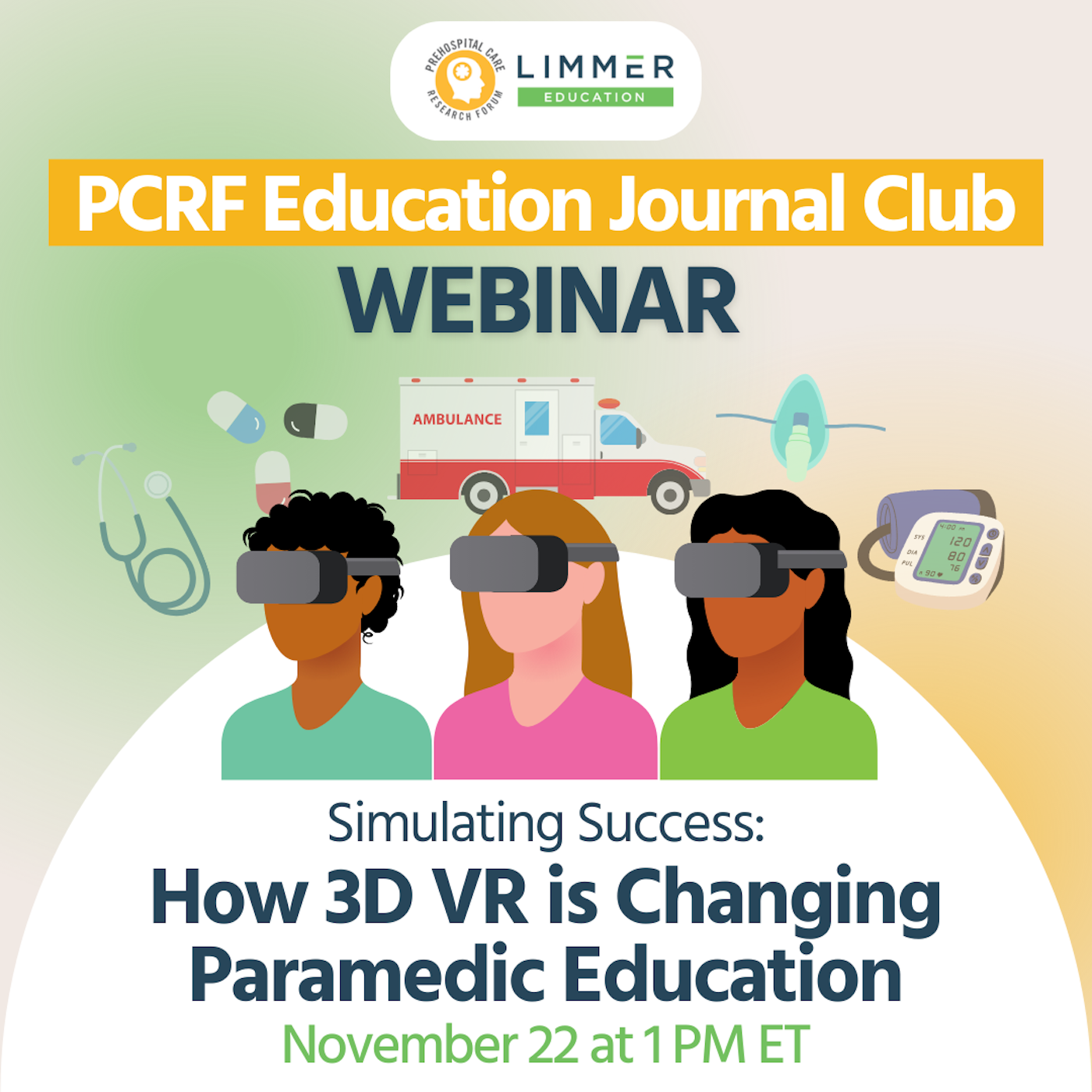
Simulating Success: How 3D VR is Changing Paramedic Education (Nov 2024)
Are virtual patients the future of paramedic training? In our latest episode, we dive deep into the groundbreaking world of 3D Virtual Reality Simulations (3DVRS) and how they stack up against tradit…
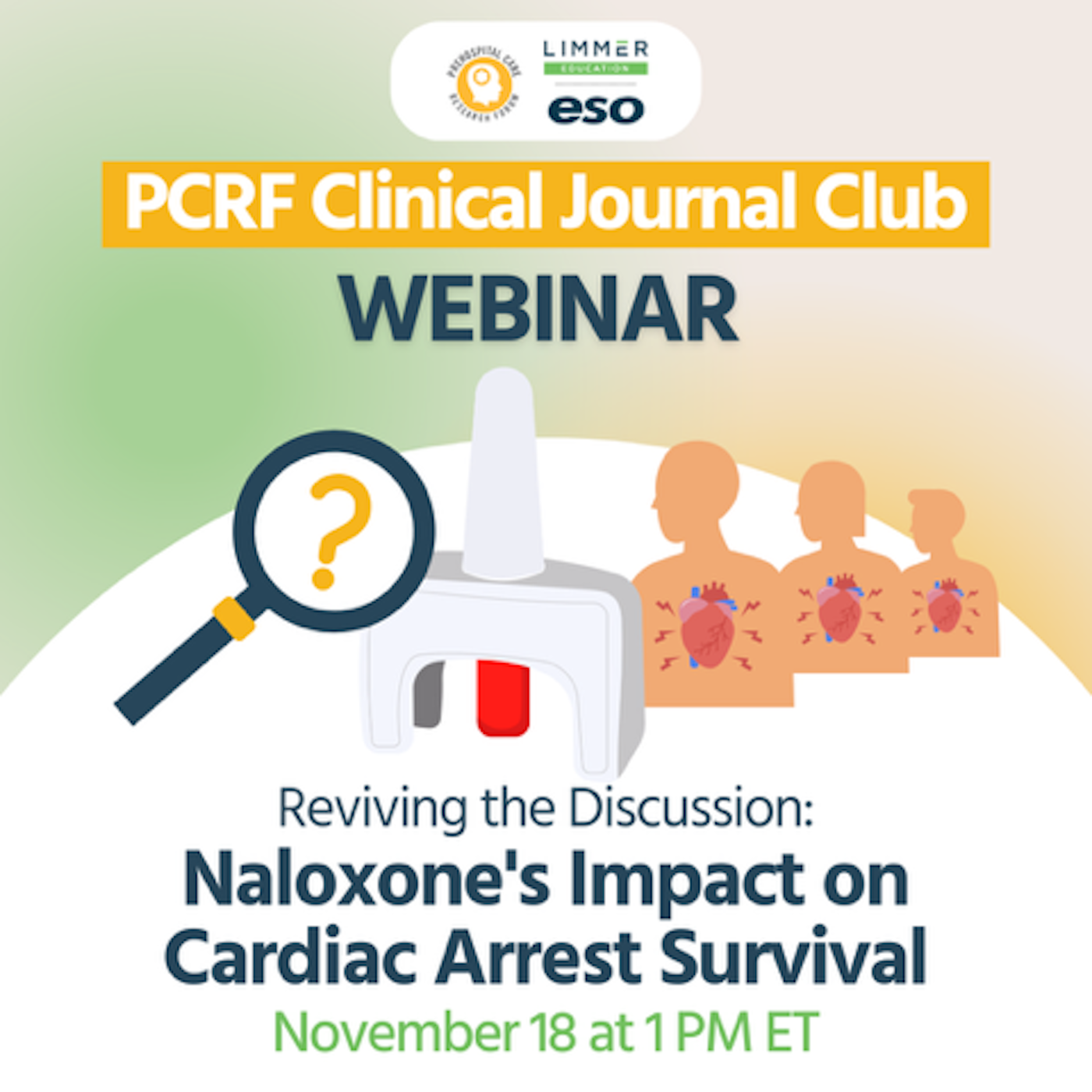
Reviving the Discussion: Naloxone's Impact on Cardiac Arrest Survival
The administration of Naloxone for patients in cardiac arrest in the out-of-hospital setting has rarely been advised in the United States. Despite this, many EMS agencies allow for its administration…
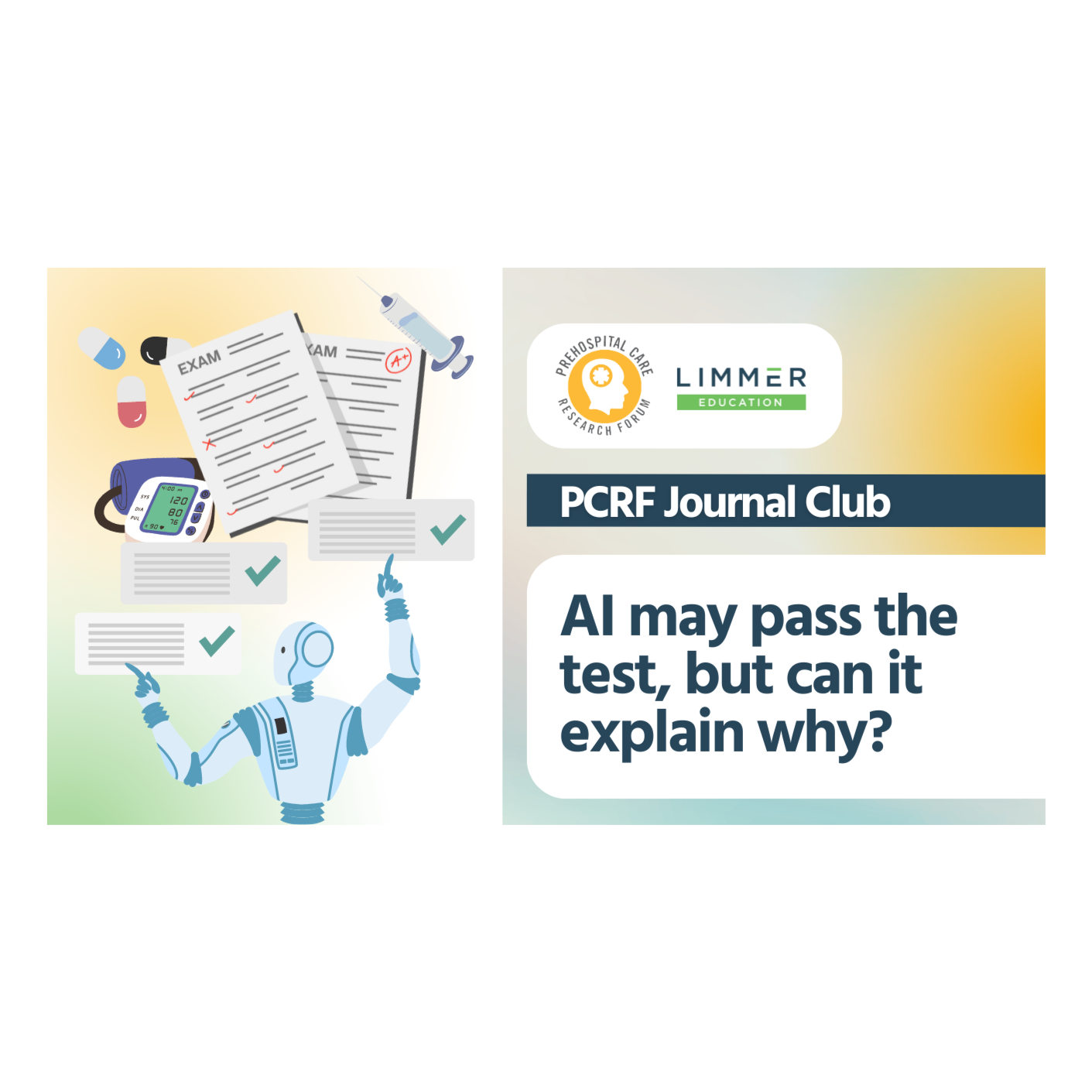
AI may pass the test, but can it explain why? (Oct 2024)
We have all seen the news articles that ChatGPT and other AI models can pass the MCAT and LSAT. As educators, we worry about computers passing tests, not students. However, is there an opportunity fo…
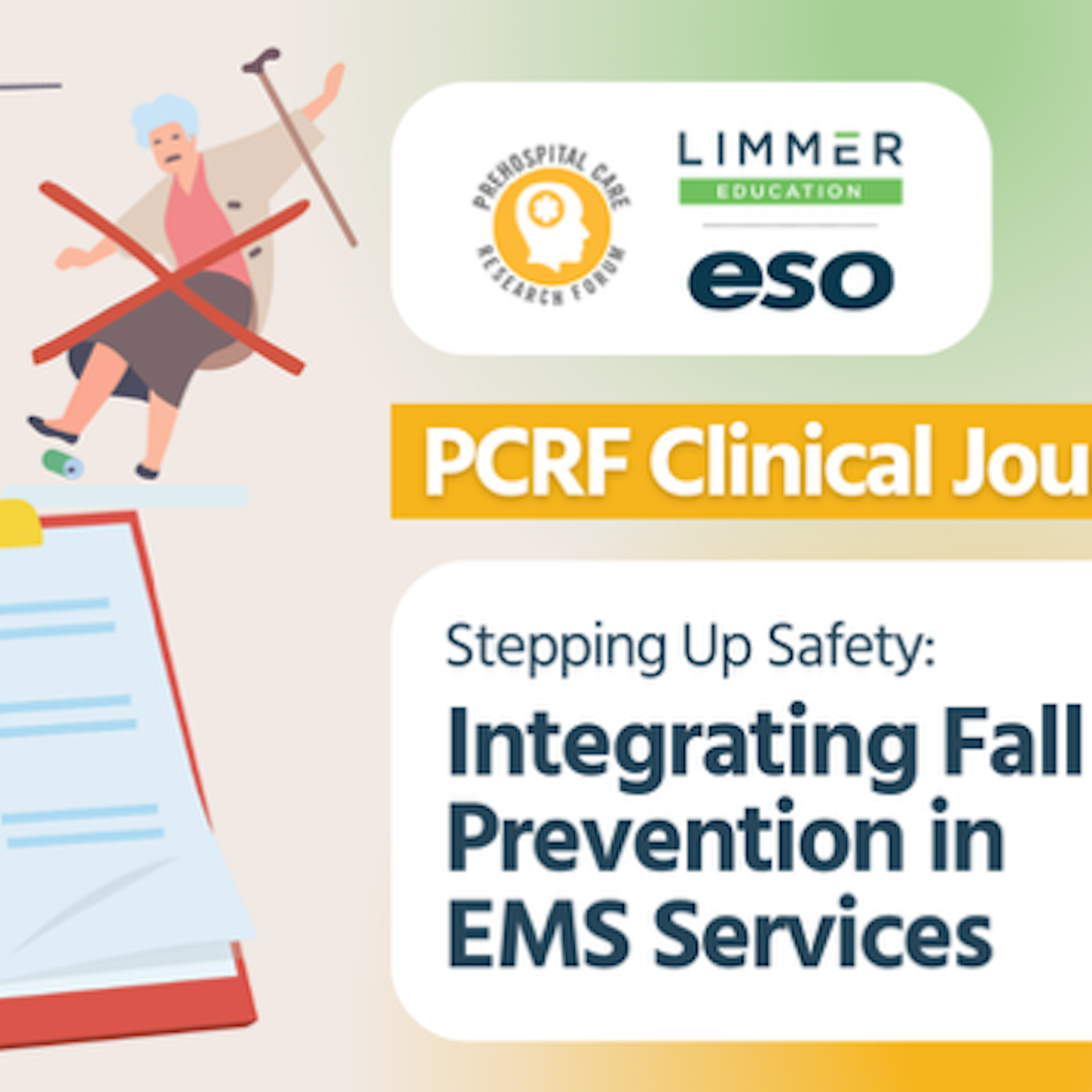
Stepping Up Safety: Integrating Fall Prevention in EMS Services (Oct 2024)
Falls are the leading cause of injury for older Americans; in fact, one out of every four persons aged 65 and older has reported a fall in the past year. Falls are also the leading cause of EMS activ…

AI Revolution: Crafting Diverse and Inclusive Medical Case Vignettes (Sep 2024)
AI is already helping to reduce the remedial and redundant tasks in our classroom, but can it design our case studies and simulations, too? Even better, can it increase the diversity of our patient s…
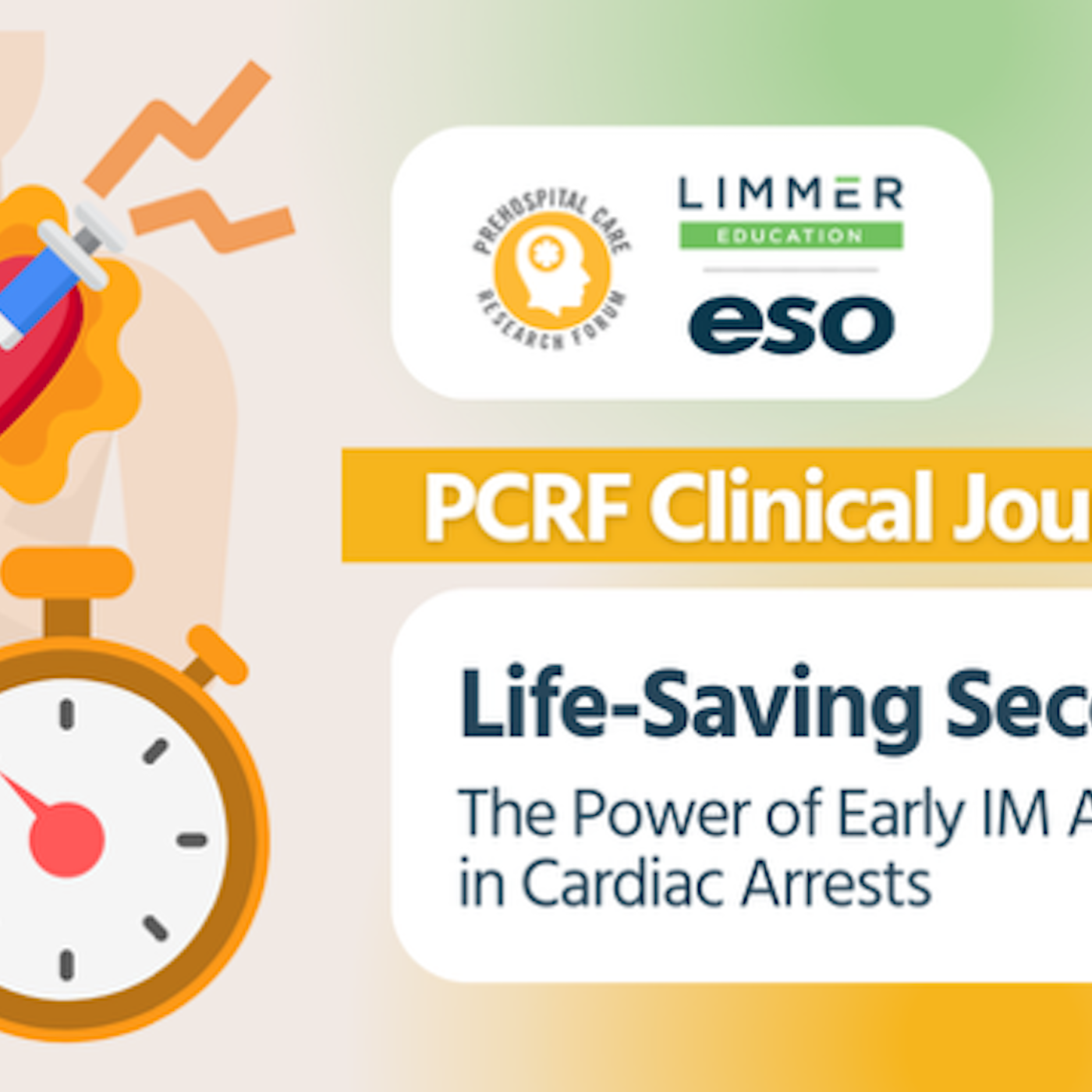
Life-Saving Seconds: The Power of Early IM Adrenaline in Cardiac Arrests (Sep 24)
There is no shortage of advancements in out-of-hospital cardiac arrest. In fact, every time EMS providers renew their CPR or ACLS, changes are made that have been demonstrated to improve the patient'…